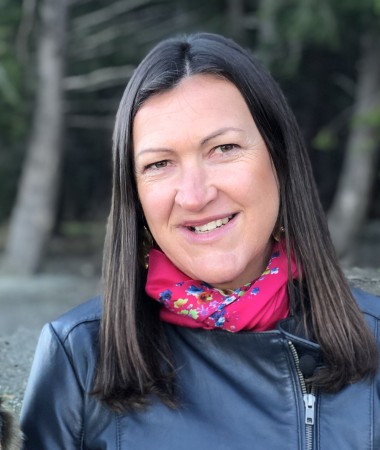
QLDC pushes 'groundbreaking' district plan change for affordable housing
In what the mayor is calling a “watershed” decision the Queenstown Lakes District Council has voted to include in its Proposed District Plan provisions that will require a contribution of either land or money towards affordable housing.
In what was a procedurally messy section of yesterday’s full meeting of the council, all bar one councillor eventually voted in support of the motion to publicly notify the plan change.
It’s welcome news for Julie Scott, the head of the Queenstown Lakes Community Housing Trust.

Housing trust executive officer Julie Scott says because it has the support of the council her trust is the envy of housing schemes across the country.
“It’s really exciting to see...that after nearly 20 years since the first stakeholder deed was signed, which was Jack's Point 2003, we're finally on our way to implementing adequate provisions into the district plan.
“This will officially enable what has been happening on the ground for the last two decades.”
She says up and down the country her trust is the envy of other community housing providers, and she has the vision of the council to thank for that.
“QLDC is well known across New Zealand as a leader in the space of inclusionary zoning and our trust has been in the very fortunate position of being the recipient of both land and cash contributions facilitated through this process.”
The council has helped generate money to support the work of the trust to provide affordable housing options across the district for decades – going forward, the plan change will make contributions more blanket.
Up until now, Stakeholder Deeds and Special Housing Areas have provided a “negotiated" contribution from developers to the district’s retained affordable housing stock, a report to councillors on the decision says.
The plan change will result in a “required” contribution - from anyone undertaking a subdivision of more than a single lot within a residential zone - and it will make the QLDC the first council in the country to use such an approach.
It’s likely the legal basis for this method of revenue gathering will be challenged, the report says.
It’s cause for concern for the two people at the meeting who spoke against the motion.
Councillor Niki Gladding, the only elected member to vote against the motion, praised the work of the housing trust but had concerns effectively taxing anyone developing residential land wasn’t the best way to generate funds to fight housing inequalities.
“I 100 percent support the work of the housing trust - It's absolutely necessary. This comes down to what is the best way to raise the money for the housing trust to operate...inclusionary zoning is not it for a number of reasons.
“It’s going to go through the courts and we won't get any money out of this, if we ever do, for five, six years...and it's going to take all that time and money to get there.”
The council needs to look at “taxing the people and activities that perpetuate the problem”, she says.
She asked the council’s legal advisor during the meeting to confirm an ability to generate such revenue through the council’s existing rating system, and the legal council confirmed it was possible with a process needed to ensure the intention of any changes was explicit to ratepayers.
That a plan change isn't the best way to gather revenue to throw at affordable housing is a view shared by John Glover, who owns Kinloch Wilderness Retreat - Councillor Gladding's comments echoed points raised by Mr Glover during the meeting’s public forum.
“What you're doing with the model is taxing those who are actually providing housing...A young couple, for example, in Glenorchy that have scrimped and saved to buy a section will have to pay another 15,000 to build their house, and double that elsewhere in the district.
“How does that help with affordability of housing?
“But you're not proposing to tax the businesses and the tourism operators...whose rapid growth in the district has been a significant factor underlying the housing shortage.

People building homes will be 'taxed' in aid of affordable housing by the plan change, so why not businesses that exacerbate the housing shortage in the district, asks John Glover?
“When Bunnings and Pak’n Save and Mitre 10 and Countdown came that was probably 1500 workers that needed houses, but they're not being asked to pay under this policy. And we're hearing of ski fields, with their thousands of workers, having the best year ever - they're not being asked to pay under this policy.”
He’s not anti the council raising revenue to support the work of the housing trust, but he doesn’t think the district plan mechanism proposed is the way to do it.
“Using the RMA to deliver inclusionary zoning, which is basically a tax, is really quite perverse, and it's actually probably stretching the scope of the RMA...the revenue raising path in the RMA is about cost recovery.”
Speaking in support of the inclusionary housing plan change Mayor Jim Boult says he accepts the move will be contested, but it’s the right move regardless.
“This issue of affordable housing is probably one of the greatest issues that we in this district will face now and going forward. It has been a problem for a long, long time."
In May this year, average house prices in the district were estimated to be 13.9 times average household incomes, whereas the New Zealand-wide ratio of incomes to house prices is 8.8, according to council research.
“There are other things we can look at and I support looking at those in conjunction with what we're doing here. This is not the exclusive work that we need to do on this matter," the mayor says.
Among things he’d like to see investigated further is “commercial inclusionary zoning” - a mechanism where businesses would be required to contribute to affordable housing.
“It’s an issue I have raised with the CEO to have a think about in the future.”
Councillor Esther Whitehead agrees the plan change is “just one tool” to aid affordable housing.
“I would like to see that there are other income streams that we can look into to support (the housing trust)...Next triennium, please, let’s revisit other mechanisms.”
Councillor Niamh Shaw says the plan change is “groundbreaking” and by supporting the local housing trust in this way the council is “paving the way” for other schemes like it around the country.
The process to move the motion became complicated when an amendment to it was voted and passed, then subsequently voted to be removed.
The amendment centred on whether two parcels of Maori-owned land should be excluded from the proposal.
“That would be the most truncated and difficult item we're faced with this council...Anyway, I think we got to the right answer,” the mayor told councillors at the conclusion of the final vote approving the motion.
Members of the public will now have their chance to have a say on the inclusionary housing plan change through a RMA submission process.
Main image (Facebook/QLCHT): The home of just one of the 243 households helped into affordable housing by 15 years of work by the Queenstown Lakes Community Housing Trust.






























